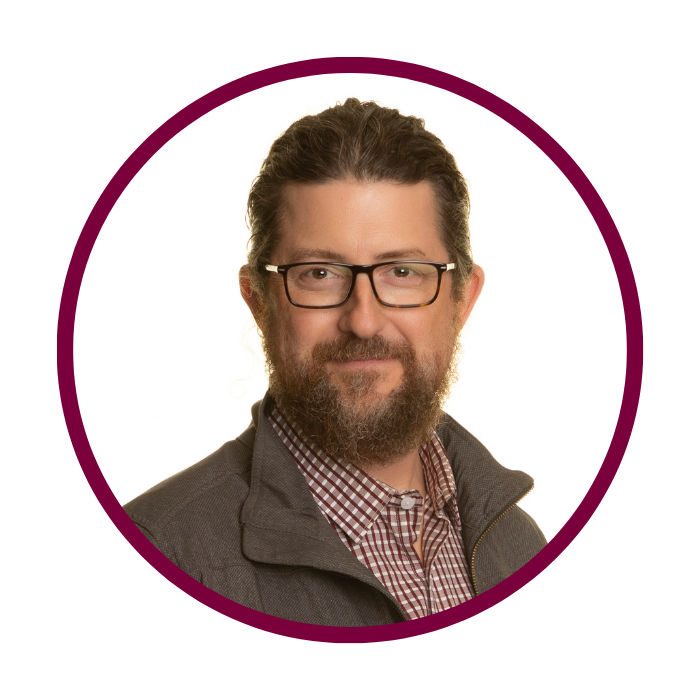Hematology/Oncology Overview
Overview
McMaster University’s Pediatric Hematology/Oncology Fellowship Program is fully accredited by the Royal College of Physicians and Surgeons of Canada. We strive to foster an environment of physician mentorship and wellness, where our trainees become an integral part of the pediatric hematology/oncology health-care team and the community of subspecialists (provincially, nationally and internationally).
Our 36-month training program aims to develop well-rounded pediatric hematologists/oncologists, who are poised to enter an academic staff position or to pursue further subspecialty training if they wish. Graduates will have a very strong foundation in all clinical and laboratory aspects of pediatric hematology/oncology, as well as the necessary skills for a successful academic career as a clinician, a scholar, and an educator.
Among the many opportunities at McMaster, our program offers:
- World-renowned expertise in thrombosis/hemostasis
- Unique combined adult/pediatric clinics including: oncology AfterCare; hemophilia; hemoglobinopathy, and neuro-oncology
- Laboratory rotations with hands-on experience and integrated bench-to-bedside resident teaching
- Extensive opportunities for teaching, simulation, and education scholarship
- An array of research opportunities from basic science to cooperative group protocols, Phase 1/2 experimental therapies, and quality of life studies
- Faculty expertise in international pediatric oncology, with participation in global health electives and/or research
Royal College of Physicians and Surgeons of Canada certification, after successful completion of the 36 month training program and the Royal College examination.
- Successful completion of the LMCC Step I & II (or equivalent)
- Successful completion of three (or four) years in a certified training program in pediatrics prior to entry
- Eligibility for an educational practice licence (or unrestricted licence) with the College of Physicians and Surgeons of Ontario
- Must be eligible for resident-level coverage through the CMPA (or equivalent)
- Must be a Canadian citizen, permanent resident, and/or eligible to work in Ontario
Application details and deadlines can be found on the CaRMS website.
McMaster Postgraduate Medical Education (PGME) provides an environment where learners can develop the skills to become expert physicians and leaders in health care.
Hematology/Oncology Education
Education
The length of training is 36 months, including four weeks of vacation per year.
Competence by Design
Pediatric hematology/oncology will launch nationally into Competency-Based Medical Education (CBME) as of July 2021. Residents will have access to mentorship and academic coaching, both internal and external, and a well represented competency committee to support their journey through the stages of training, including: Transition to Discipline, Foundations, Core, and Transition to Practice. McMaster’s CBME transition will be strongly supported throughout the postgraduate level and the Department of Pediatrics.
Formal curriculum
Formal learning opportunities will include local teaching sessions blended with: access to online content and practice exams; nationally broadcast lecture series; shared academic sessions with other pediatric subspecialties and adult hematology training programs, and videoconferencing half-day sessions with other hematology/oncology training centers. The timing and structure of in-person teaching vs. learning modules will vary within the laboratory rotation experiences.
Year 1
- Pediatric hematology/oncology, junior trainee experience (ward and clinics)
- Laboratory/diagnostic training, with relevant hematology clinics
- Research methodology
- Protected continuity clinic & academic half-day
Year 2
- Pediatric hematology/oncology, senior trainee experience (ward and clinics)
- Three-month block of stem cell transplantation/cellular therapies
- Laboratory/diagnostic training, with relevant hematology clinics
- Radiation oncology, neuro-oncology, palliative care, thrombosis/hemostasis
- Research
- Electives
- Protected continuity clinic & academic half-day
Year 3
- Junior attending experience (ward and clinics)
- Research
- Electives
- Protected continuity clinic & academic half-day
Electives
Residents may design their own clinical/research electives in various sub-specialty areas within oncology/hematology, radiology, pathology, global health, or any other relevant field of interest.
Residents may choose to do electives at other Canadian institutions or abroad, pending approval by the residency program committee.
Academic Half-Day Teaching
Trainees have weekly protected teaching time that consists of problem-based learning modules; lectures by local faculty or invited guests, independent study time, and video-based provincial teaching sessions (a joint venture with the Hospital for Sick Children and other centres nationally).
Education / Divisional Rounds
Bi-weekly rounds are an opportunity to review and critically appraise literature, develop standard of care protocols, and engage in quality improvement initiatives.
Conferences / Education
Trainees are supported to attend at least one conference every year. Additional financial support may be available if a resident is presenting their own scholarly activity, or if educational materials are required for their training.
Hematology/Oncology Clinical
Clinical
Trainees become competent in the diagnosis and management of all pediatric hematology and oncology problems, with extensive exposure in the outpatient (clinic) and inpatient (ward) settings. McMaster emphasizes a multidisciplinary team approach to the comprehensive care of infants, children, and adolescents.
In addition, trainees will care for off-therapy patients, long-term AfterCare survivors, and complex palliative patients.
Clinical training includes:
Inpatient (ward)
With graded responsibility for patient care and managing a busy unit and multidisciplinary team, trainees will be responsible for the daily care of admitted hematology/oncology inpatients and new patient consults.
Outpatient (clinic)
Residents will engage with the daily clinics, balancing daily active care oncology clinics with long term follow-up and a variety of hematology clinics, as well as performing procedures weekly (bone marrow, lumbar punctures) in the sedation area.
Cell diagnostics
Trainees receive in-depth training in cellular morphology and hematopathology techniques. They learn the laboratory tools used to diagnose hematological disorders, including applications of specialized techniques such as cell surface markers, immunohistochemistry, cytogenetics, DNA analysis, etc.
Hemostasis & coagulation
This laboratory-based rotation focuses on blending basic science, clinical, and laboratory aspects of hemostasis. Residents learn theory and laboratory principles of hemostasis and thrombosis with a clinical component offered through the regional hemophilia centre and platelet disorder clinic.
Thromboembolism/hemostasis
Residents care for a wide array of inpatient and outpatient thrombosis and bleeding disorder patients, with a blend of new consults and follow-up patients. This is primarily clinical with a correlative laboratory component.
Transfusion medicine
Training focuses on developing expertise in transfusion medicine through knowledge acquisition, exposure to relevant laboratory techniques, and medical resource management. Residents also attend outpatient clinics related to hemophilia and platelet disorders.
Red cell disorders
Trainees obtain expertise in the diagnosis of red cell disorders, including hemoglobinopathies with a particular emphasis on DNA/RNA analysis and molecular techniques. Residents also have exposure to patients with red cell disorders in the outpatient benign hematology clinics and the combined hemoglobinopathy clinic.
Other clinical rotations
Residents will spend time with relevant clinical services such as radiation oncology, palliative care and quality of life, and neuro-oncology.
Continuity clinic
Residents have a protected half-day clinic each week to follow their own patients in a longitudinal clinic, with appropriate staff supervision and back-up.
The majority of clinical exposure takes place at McMaster Children’s Hospital, a 165-bed tertiary care academic pediatric hospital in Hamilton that serves a large geographical region from Brantford to Niagara and from Oakville to Kitchener, with a catchment area of over two million people.
Trainees are required to complete a three-month rotation focused on stem cell transplantation and cellular therapies, typically done at the Hospital for Sick Children in Toronto.
Some training (radiation oncology, laboratory experiences) takes place at local hospitals within Hamilton Health Sciences or St. Joseph’s Healthcare Hamilton.
Hematology/Oncology Research
Research
Trainees are exposed to a wide array of research opportunities, from basic science to cooperative group protocols, Phase I/II experimental therapies, global health, and quality of life studies.
Residents will have a minimum of six months protected time for scholarly pursuit. All residents are supported to pursue training in clinical or basic research methodologies. Residents are expected to complete a scholarly activity project in accordance with Royal College guidelines and the American Board of Pediatrics requirements. Each resident will have a three member scholarly oversight committee, in order to provide research mentorship and supervision throughout their training.
Hematology/Oncology Contact Us
Information Box Group
Contact Us
We invite you to learn more about the Hematology/Oncology Fellowship Program and the opportunities that are available at McMaster University. Please feel free to contact us with any questions.
Faculty Directory
Information Box Group
Adam Fleming
Hematology/Oncology Fellowship Program Director
Faculty

Adam Fleming
Hematology/Oncology Fellowship Program Director
Faculty
Adam Fleming
Hematology/Oncology Fellowship Program Director
Faculty
Adam Fleming
Hematology/Oncology Fellowship Program Director
Faculty
Staff Directory
Information Box Group
Roxanne Ali
Administrative Assistant, Hematology/Oncology Fellowship Program

